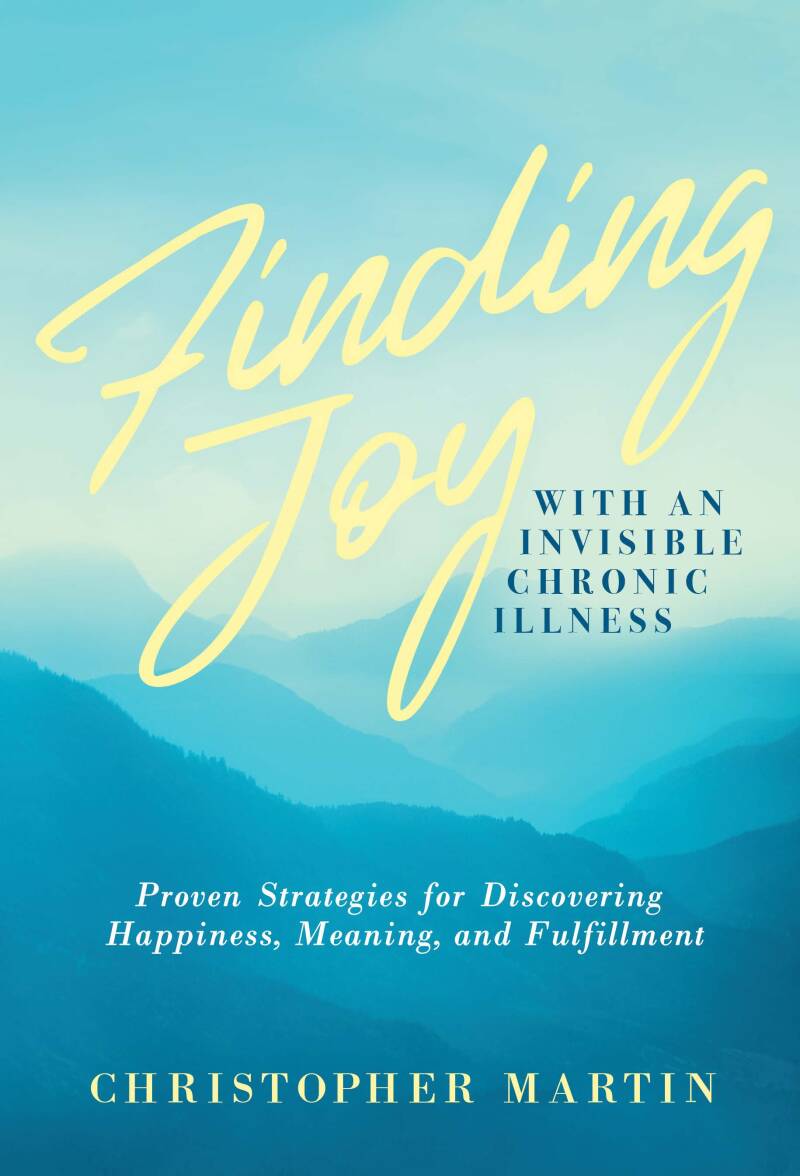I am a school psychologist, husband, father, and - pertinent to this website - an author who has multiple invisible chronic illnesses.
And an invisible chronic illness is a beast. On top of draining you physically, a chronic illness can impact all aspects of your life ranging from causing financial hardship to harming your relationships to dampening your spirits. Try to be cheerful when you have this unremitting “monkey on your back” known as an invisible chronic illness that constantly demands your attention 24-7. Needless to say, it’s easy to let yourself and others down.
Plus, your family or friends can't see your illness, as it's invisible, and they may not understand. Most with an invisible illness are familiar with “advice” ranging from “stay positive” to “you look good” to “Have you tried ___ for your condition?” Yup, you probably have, and it didn’t work.
On top of that, best wishes in accessing (and maintaining) high quality medical care when you are too tired to even take care of yourself.
Welcome to the world of an invisible chronic illness. I should know. I suffer from multiple invisible chronic illnesses, including a primary immune deficiency disorder and bronchiectasis.
But it doesn’t have to be this way - for you or for me. While I am far from cured of my illness, I still maintain a fulfilling life and experience ongoing joy, peace, and happiness. Because of good medical care, extensive self-educating and self-care, and a supportive family, I effectively manage my chronic illnesses. But I didn't want to be the only one to benefit. It was my goal, in turn, to give back to others by doing what I love to do: authoring books on these conditions.
Thank you for stopping by. I hope that by visiting this website and blog, and/or by reading my books, you will find yourself encouraged and your day just a little brighter.
WHY WAS FINDING JOY WRITTEN?
Finding Joy with an Invisible Chronic Illness has been written in part to address the following problems chronic illness patients confront:
1) the emotional challenges that stem from living with an invisible chronic illness and the subsequent high rates of depression;
2) the loneliness many with chronic illness experience, misunderstanding from others, and ensuing relationship difficulties;
3) the diagnostic and prognostic confusion, and difficulty accessing and maintaining high quality healthcare;
QUESTIONS FINDING JOY ANSWERS
- How can you experience those good thoughts and feelings, enjoy life at its fullest, and de-stress when faced with constant, unremitting physical suffering?
- How can you enhance your relationships, find support, respond to the naysayers, and possibly even help them understand you and your illness?
- When seeking medical care, how can you get the answers you deserve, and access and maintain quality healthcare?
As a school psychologist and patient, Finding Joy integrates my professional and personal insights to advocate a holistic approach to managing chronic illness.
WHAT FINDING JOY OFFERS
Finding Joy is an A-to-Z guide that critiques the literature and empowers the reader with:
- Positive psychology techniques. These range from self-compassion, positive reappraisal, positive self-talk, and pacing to positive thoughts, emotions, and behaviors such as optimism, humor, and volunteer work.
- Stress-reduction methods. These include tools such as mindfulness, breathing exercises, simplification, and (therapeutic) journaling.
- Proven therapies. Examples include cognitive behavior therapy (CBT), dialectical behavior therapy (DBT), and acceptance and commitment therapy (ACT).
- Effective communication strategies and their impact on relationships and even the ability to access quality healthcare.
- Numerous tips to both access and maximize your access to high quality healthcare.
- Important considerations for the loved ones of the chronically ill, so they too can know how to best support their loved one and take care of themselves in the process.
BOOKS
- Finding Joy with an Invisible Chronic Illness: Proven Strategies for Discovering Happiness, Meaning, and Fulfillment (2021)
- ¿Cirugía nasal? ¡No caiga en las garras del síndrome de la nariz vacía! (2015) (Spanish Translation)







